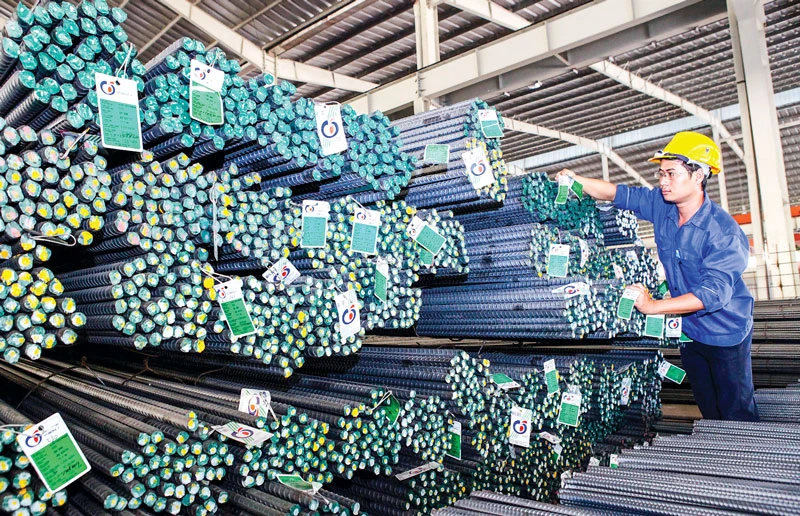
Complex situation
As seen until March 2020, there were around 120 cases of complaints by seventeen countries and territories of default in trade practices in exports from Vietnam. Most of these cases concerned anti-dumping, improper trade practices and counterfeit in origin of products. Almost 80% of these legal suits were related to the steel industry. Up until now, there are eleven export markets filing for legal action against Vietnam steel, which include the US, the EU, and the Eurasian Economic Union. While some other strong markets such as Malaysia, Turkey and Taiwan are also in the process of considering taking appropriate legal action.
By the end of 2019, the US Department of Commerce (DOC) had announced the final conclusion of an investigation on evading anti-dumping and countervailing measures concerning cold rolled steel (CRS) and corrosion resistant steel (CORE) from Vietnam, which had input material from South Korea, Taiwan and China. According to statistics issued by the US department, in the first ten months of 2019, exports from CORE and CRS to the US were around USD 260 mn. DOC had complained that CRS products manufactured from hot rolled steel from South Korea, Taiwan and China did not meet the required standards of the US, so they were considered under illegal evasion of taxes.
The US Customs agency collects tax on steel products from Vietnam under specific terms in each product group, and while the US market currently accounts for 6.5% of Vietnam's total steel exports, there is fierce competition to overcome technical barriers and commercial trade regulations set by many countries. In recent years, the domestic steel industry, especially large manufacturing and export enterprises, have actively developed production and business plans in view of US anti-evasion measures. Specifically, many businesses have shifted to using input materials such as hot rolled steel, from various sources outside as well as domestic, and have built a strong self-certification management system.
In 2019, besides the legal case against the steel industry, many goods and raw materials for production from high-tax countries found their way into Vietnam, which were then exported to other countries with change of marking of origin so as to enjoy preferential tax rates. Currently, along with a strong growth of exports to the US and the EU, the Vietnamese market has increased imports of similar products from China, such as computers, electronic products and components; metal products; electric wires and cables; wood and wood products; glass and glass products. In particular, many commodity groups that had a sudden increase in export turnover from 20% to 50% are also being investigated by importing countries for tax evasion. These commodity groups are related to enterprises dealing in iron, steel, electric bicycles, solar batteries, and plywood.
According to the General Department of Customs, in 2019 the total value of import and export turnover from Vietnam reached around USD 517 bn, in which, total export value was at USD 263.85 bn, import was at USD 254 bn, and trade balance surplus was nearly USD 9.9 bn. However, these figures are being challenged as they seem related to fraud in origin of products and other trade malpractices.
Dependency on imported goods
In order to ensure effective international cooperation and strong growth in import and export activities, and to ensure a stronger growing economy and robust enterprises, we should take many measures to combat and completely do away with fraud in origin of raw products.
Firstly, it is necessary to improve our understanding and awareness of consumers and businesses, the serious repercussions in the practice of fraud, and the integrity value involved in passing on illegal goods to consumers. This must be the basis of holding ourselves accountable and responsible. It is also imperative that we raise awareness in businesses not to work with borrowed foreign names and brands, thereby making it difficult for import and export goods to maintain credibility with consumers.
For this reason, we must perfect the legal system of obtaining goods and review our policies for checking and verifying goods as they arrive, ensure close monitoring and adopt international practices in our fight against fraud for origin of goods, as well as curtail illegal transportation of such goods. In fact, the World Trade Organization (WTO) allows for application of trade regulations to deal with unfair competition in import of goods, such as dumping or with subsidized goods. We must therefore actively protect domestically manufactured goods, and cease dependency on imported raw goods.




















